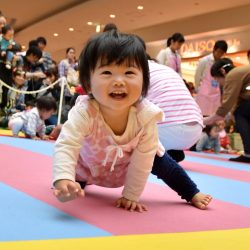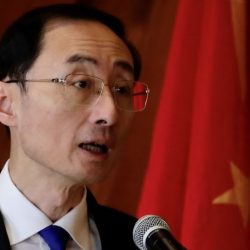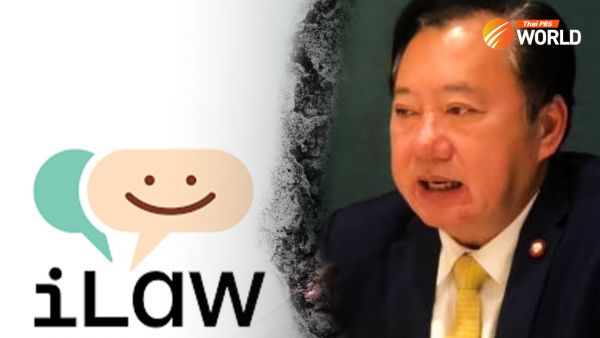Powerhouse: Thaksin’s family mansion back at center of Thai politics

Once synonymous with the Shinawatras’ political power, the family mansion of Ban Chan Song La made headlines again this month when it was chosen as former prime minister Thaksin Shinawatra’s residence following his release on February 18.
Just a week after returning “home” for the first time in over 15 years, Thaksin received two important visitors at the mansion – former Cambodian prime minister Hun Sen on Wednesday and Prime Minister Srettha Thavisin on Saturday.
Hun Sen said in a social media post that he and Thaksin “just reminisced about 32 years of friendship and did not talk about politics”.
The Khmer strongman has relinquished leadership of the country to his son and is now chief adviser to Cambodia’s king.
Srettha likewise maintained that he and Thaksin did not discuss politics during his private visit, adding that the ex-PM offered him moral support and asked him to look after his health.
Analysts say the PM’s visit reflected Thaksin’s continued political power and underlined his status as the patriarch of the ruling Pheu Thai Party.
Srettha, a property tycoon before entering politics, was among three Pheu Thai prime ministerial candidates in last year’s general election. Another was Thaksin’s youngest daughter, Paetongtarn, but Pheu Thai opted to nominate Srettha, who was elected Thailand’s 30th prime minister in a majority vote by Parliament.
Center of Thai politics
Thaksin is expected to stay in the house alone as his ex-wife Potjaman and their children no longer live there. The five family members – Thaksin, Potjaman and their three children – held a “homecoming dinner” at the mansion on Sunday, according to a Facebook post by Paetongtarn, the current Pheu Thai leader.
Ban Chan Song La is located in Soi Charan Sanitwong 69, Bang Phlat district, on the Thon Buri side of Bangkok. The residence was home to Thaksin and his then-wife Potjaman even before he became Thailand’s 23rd prime minister in February 2001.
It became the center of Thai politics during Thaksin’s tenure, a magnet for powerful political figures and world leaders, including former US presidents George W Bush and Bill Clinton, who visited Thailand soon after the Boxing Day tsunami in 2004.
“Chan Song La” was also the name given to the major faction loyal to Thaksin in the ruling Thai Rak Thai Party. The residence of the “big boss” – as Thaksin was known to party MPs and political observers – served as a “headquarters” for his loyalist clique to meet and set agendas for their party and government.
In December 2005, Thaksin and Potjaman hosted a dinner at the mansion for a group of Thai Rak Thai’s women MPs. Potjaman held no executive post in the party but was already renowned for wielding strong influence among its MPs – a status she reportedly retained in Thai Rak Thai’s reincarnations, People Power and Pheu Thai.
Attracting protesters
Ban Chan Song La regularly attracted protesters in their hundreds during Thaksin’s second term in office, following his party’s landslide win in the February 2005 general election when it swept 377 out of the 500 MP seats. In December of that year, about 500 people gathered outside the mansion to protest the Thaksin government’s plan to privatize the Electricity Generating Authority of Thailand. The protesters clashed with police but there were no serious injuries.
In August 2006, police stepped up security for the mansion after an Army lieutenant at Internal Security Operations Command (ISOC) parked a car laden with explosives at a nearby intersection where Thaksin’s motorcade was due to pass. The lieutenant, a driver for ISOC deputy chief General Pallop Pinmanee, was sentenced to jail by a military court while his boss was sacked.
On September 20, 2006, a day after Thaksin’s government was overthrown in a military coup while he was in New York to attend a United Nations General Assembly, soldiers erected barriers around the deposed PM’s mansion.
In July 2007, a senior public prosecutor working on the Ratchadaphisek land case against Thaksin arrived at the house to post a subpoena issued by the Supreme Court’s Criminal Division for Persons Holding Political Positions. By that time, Thaksin was living overseas.
He returned to Thailand in February 2008 after his proxy People Power Party won the election and its leader, veteran politician Samak Sundaravej, became prime minister. The ex-PM stayed at Ban Chan Song La with his family after being released on bail.
Last party before fleeing
On July 26, 2008, Thaksin and his family celebrated his 59th birthday at the mansion along with his supporters. It was to be his last birthday party in Thailand before leaving the country the following month after being granted permission by the court to attend the Beijing Olympics. He did not return, instead choosing to remain beyond the reach of Thai justice.
During his absence, Thaksin was sentenced to a combined 12 years in prison for corruption and abuse of power. He finally stepped back onto Thai soil on August 22 last year after 15 years of self-imposed exile overseas.
Even during his exile, Ban Chan Song La still drew “visitors”. In November 2013, a group gathered outside the mansion to protest against an amnesty bill proposed by the government of Yingluck Shinawatra, Thaksin’s sister. They complained that the draft bill was designed to benefit Thaksin.
In March 2017, Revenue Department officials posted a summons at the mansion demanding the former premier pay back taxes and fines worth 17.6 billion baht stemming from the 2006 sale of his Shin Corp shares. In August 2022, the Central Tax Court revoked the Revenue Department’s order on the grounds that the agency failed to summon Thaksin for tax appraisal by a legal deadline.
By Thai PBS World’s Political Desk






